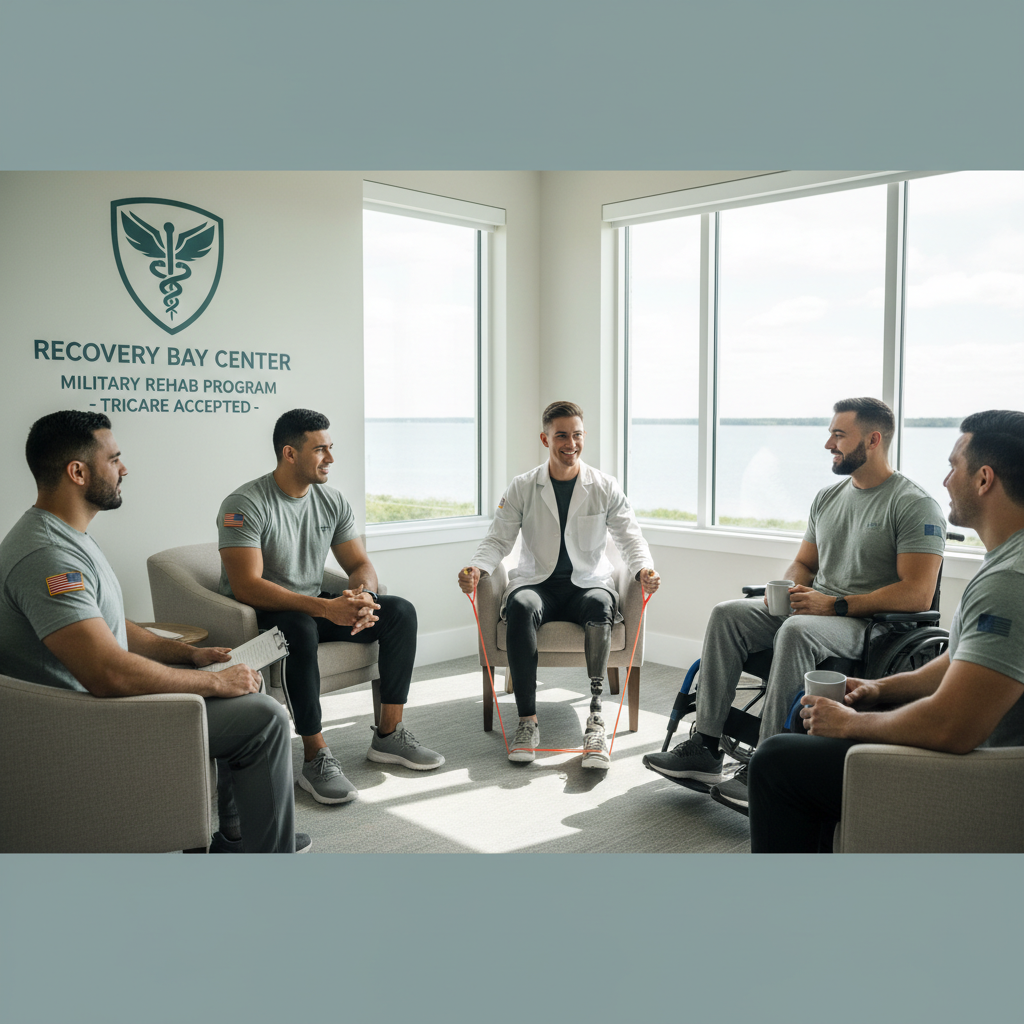Watching a loved one battle addiction is always heartbreaking. It can also take a tremendous toll on the patience, understanding, and tender emotions of everyone in the home.
People in active addiction break promises. They prioritize getting drunk or high above all else. Many lie, steal and cheat to obtain more of their drug of choice. Even as their legal, financial, and personal problems mount, they can still spend months or even years blaming others for their mistakes. They may also refuse to acknowledge their addictions, and refuse to seek help.
When someone you care about seeks professional addiction treatment, all of these things can change. While they’re away in rehab, you may spend time imagining what life will be like once they’re out. Although you might be expecting to see the same person that you knew before their substance abuse, recovering addicts are on a challenging, lifelong journey after treatment. When Your loved one returns home, their lives, struggles, personalities, and needs can be far different from what their families imagine.
What to Expect From Them
Leaving inpatient treatment is often scary. Inpatient programs provide the benefit of a closed and completely stress-free campus. Although recovering addicts deal with frequent temptations and cravings during the initial stages of a rehab program, they lack the ability to obtain drugs or alcohol. Relapse is effectively prevented by the inherent restrictions and lack of access that a secure treatment environment supplies.
During treatment, people gradually move away from wanting drugs and alcohol. They recognize that their life after rehab is fuller and far better without them. They learn new coping skills. And they find and leverage strategies for ensuring mood balance, and good mental and physical health.
Closely following the advice that they’ve received in treatment can be comforting after returning home. If you’re loved one is committed to staying sober, you should expect them to spend time dedicated to doing so. Sober meetings like Alcoholics Anonymous are great for additional support. Remaining in contact with their new support network from treatment also helps solidify their foundation.
Although these commitments mean time spent away from the family, it’s vitally to be completely supportive. The more time that people spend actively focusing on and working on their recoveries, the more likely they are to succeed.
Some people choose to transition into sober living homes after treatment. Others join relapse prevention programs or take part in outpatient addiction treatment. The risk of relapse is highest during the very first year of recovery. With just one to three months spent in inpatient treatment, these programs provide a reliable bridge that makes transitioning back to everyday life both less risky and infinitely easier. Encouraging your loved one’s continued focus on addiction recovery is always one of the best forms of support you can provide.
Life at Home After Rehab
Life at home is guaranteed to be different after rehab. In fact, you may be surprised by just how different your loved one is. In addiction treatment, patients are encouraged to listen to themselves and to actively listen to others. People often exit treatment more thoughtful, better at communicating, and better at coping with uncomfortable situations and environments in healthy, sustainable ways.
Notwithstanding the positive changes that you notice, your family member will still be quite vulnerable after treatment. This isn’t a time to immediately return to your favorite hangouts, or even to rejoin your old group of friends. Recovering addicts are advised to do all that they can to avoid temptations and triggers post-treatment, including at home.
Before your loved one arrives at the rehabilitation facility, it’s imperative to ensure that your home environment is conducive to their recovery journey. This means taking proactive steps to remove any potential triggers or obstacles that could hinder their progress. Make sure you aren’t storing alcohol, potentially addictive prescription medications, or any substances that might pose a threat to their sobriety. An organized and clutter-free space can contribute to a sense of calm and tranquility, allowing them to focus on their healing.
Creating a stress-free atmosphere at home is crucial. Minimize unnecessary pressures and tensions by maintaining open communication with other family members and addressing any potential conflicts beforehand. Establishing a stable routine can help your loved one feel more secure and supported during this transitional phase. When they return home from the men’s addiction treatment program, they should find an environment that is comforting and understanding.
Moreover, as you welcome your loved one back into the fold, it’s essential to be vigilant about their surroundings. Family and couples outings should be chosen carefully, avoiding any high-risk environments or situations that might trigger cravings or jeopardize their progress. Instead, opt for activities that promote relaxation, bonding, and positive experiences. Creating memorable moments in safe and supportive settings can strengthen family ties and provide the encouragement needed to maintain sobriety.
How to Help
In addition to creating a stable, temptation-free living environment, do your best to limit arguments, tension, and other high-stress situations and events that might upset your family member’s emotional balance. Home should be a comfortable, peaceful, and compassionate space for everyone.
However, even as you place your focus on supporting your loved one, be sure to accommodate yourself. You’ve likely put much of your own life on hold while living with an addict. Taking steps to care for and nurture yourself is vital for preventing feelings of resentment, impatience, and frustration.
In recovery, people are constantly working on themselves, and they should be constantly prioritizing their own well-being. Give yourself and everyone else in the household permission to do the same. Positioning yourself as a growth partner or an accountability partner is a great way to offer encouragement and support while allowing your loved one to retain their dignity and autonomy.
Speak to a Professional and Educate Yourself
It’s important to understand what addiction is and how it has and will continue to impact your loved one in early recovery. Although addiction is often perceived as being a matter of personal choice, it is actually recognized as a chronic mental illness.
There is no cure for addiction. Your loved one won’t simply complete treatment and then be over the hurdle. Recovery is a lifelong process that requires careful management of the many possible underlying causes of addiction. If your loved one also has a co-occurring disorder such as:
- Post-traumatic stress disorder
- General anxiety disorder
- Schizophrenia
- Bipolar disorder
or any other diagnosed mental illness, this will need to be managed as well. Speaking with a professional and learning more about the disease of addiction will help you set feasible expectations for the recovery process, and offer the right support. You can also join a support group for families of recovering addicts to benefit from the information and sense of camaraderie they provide.
Ask Questions and Keep Open Communication
Encourage open communication. Let your loved one talk about how they feel. Be sure to also express your own thoughts and opinions. If you have negative opinions to share, be sure to do so in a loving way, and only when they’re conducive to growth.
If anyone in the home has difficulty communicating, consider scheduling family counseling. Working with a family counselor can prevent repressed emotions from spiraling out of control. It’s always a great way to improve everyone’s communication skills and to deal with some of the emotional hurdles that the entire family unit will likely face.
Stay Away From the Past
No one blames addicts for their past mistakes and personal shortcomings more than addicts themselves. One large part of succeeding in addiction recovery is developing a strong sense of self-worth. Addicts must believe that they are worthy of getting better, worthy of better lives, and worthy of a fresh start. During addiction treatment, people work hard to overcome feelings of guilt, shame, and low self-worth. Bringing up the past undermines the progress that they’ve made in this area, and can even set the stage for relapse.
Try to focus on what lies ahead. Recognize that your loved one won’t always do or say the right things, and may continue to struggle with making the right choices. If you still deal with overwhelming feelings of regret, resentment, or outright anger, it’s important to seek counseling for yourself.
Addiction is recognized as a family disease. Everyone in the home is impacted by it, and everyone can benefit from counseling. Working with a therapist will also help you identify and avoid enabling behaviors, set firm boundaries, and start making yourself a priority.
Stay Patient
One of the most important things to remember when welcoming your loved one home is that recovery is a journey. There will be good days and bad days. Addiction takes a toll on the physical body, and it also takes a significant toll on a person’s mental well-being. It takes time for the brain to fully resume normal functioning, and for an addict’s altered brain chemistry to regain balance.
Although considerable progress has been made, it’s not uncommon for people to deal with bouts of depression, malaise, and low motivation after exiting rehab. Recovering addicts are always working to find new, healthier ways to enjoy life, and to fill their free time.
While you might be eager to see specific amounts of progress in very specific areas, be sure to celebrate the wholeness that sobriety has provided. By remaining patient, you can help your loved one navigate the challenges of the first year of recovery and beyond.
Do Not Enable
Enabling behaviors often start with a desire to help the people we care about avoid hardship and pain. Surprisingly, enabling someone who’s in recovery can be just as easy as enabling someone with a full-blown addiction.
Know what the expectations are for a recovering addict at each stage of recovery. Don’t make excuses for not attending sober meetings, for hanging out in the wrong environments, or for engaging in other high-risk behaviors. Set firm boundaries for what will and will not be tolerated in the living environment, and recognize the early signs of a mounting relapse.
When recovering family members need additional treatment, they should always be encouraged to seek it. If your loved one requires a more structured environment, help them find options in sober living, or in outpatient rehabs.
At Recovery Bay Center, we know how hard it can be to watch a loved one struggle with addiction. We offer an expansive range of services for helping addicts reclaim their lives. If your loved one needs inpatient addiction treatment or requires post-treatment support, we’re always here to help. Call us today to learn more about our programs or to speak with one of our admissions counselors.





